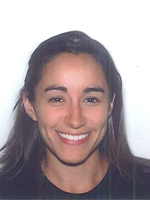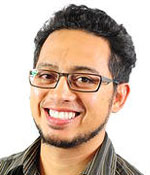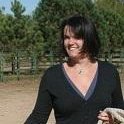2016 ESA Education Scholars
We are pleased to announce the 2016 ESA Education Scholars who have participated in the first ESA-QUBES Faculty Mentoring Networks in Spring 2016. Scholars implemented modules from selected Teaching Issues and Experiments in Ecology (TIEE) and have shared the products of their efforts in QUBESHub.org and EcoEd Digital Library.
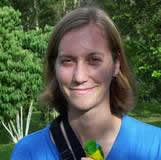 Marja Bakermans
Marja Bakermans
Worcester Polytechnic Institute
Marja Bakermans received her BS in Biology from Bucknell University and MS and Ph.D. in Natural Resources from The Ohio State University where she focused on the ecology and conservation of forest-nesting songbirds. Marja is an Assistant Teaching Professor at Worcester Polytechnic Institute where she is an instructor in both the Great Problems Seminar Program and the Biology & Biotechnology Department. Marja possesses a strong commitment to student education and research, and a goal of hers is to stimulate students’ critical thinking and problem-solving abilities while addressing ecological problems. Marja has a well-grounded research background, which informs her teaching of interdisciplinary topics with an expertise in conservation biology in both North and Latin America. She takes an experiential approach to teaching where students receive a solid foundation of knowledge but then apply this to real-life situations.
Module 1: Investigating the footprint of climate change on phenology and ecological interactions in north-central North America
http://ecoed.esa.org/index.php?P=FullRecord&ID=539
https://qubeshub.org/collections/post/1461
Module 2: Global Temperature Change in the 21st Century
http://ecoed.esa.org/index.php?P=FullRecord&ID=355
https://qubeshub.org/collections/post/1469
Kerry Byrn e
e
Oregon Institute of Technology
Kerry is an assistant professor in the Natural Sciences Department at Oregon Institute of Technology. There, she teaches courses in general biology as well as upper division courses in plant ecology, evolution, and botany. She received her B.S. in Environmental Biology in 2004 from the University of California, Davis, then worked as a plant ecologist for an environmental consulting firm before receiving her PhD in Ecology in 2012 from Colorado State University. Her research interests include global change biology and plant conservation, in addition to student learning, attitudes, and confidence in STEM education.
Module: Investigating the footprint of climate change on phenology and ecological interactions in north-central North America
http://ecoed.esa.org/index.php?P=FullRecord&ID=539
https://qubeshub.org/collections/post/1480
April Conkey
Texas A&M University-Kingsville
I’m an Assistant Professor in the Department of Animal, Rangeland, and Wildlife Sciences at Texas A&M University-Kingsville. I earned B.S. and M.S. degrees in biology from Texas A&M-Kingsville and a Ph.D. degree in Wildlife and Fisheries Sciences from Texas A&M University, College Station. My research focuses on wildlife ecology, human dimensions, and education and outreach. I teach undergraduate level courses on Principles of Wildlife Management, Wildlife Management Techniques, Human-Wildlife Conflict Resolution, and a graduate level Teaching Methods course.
Module: Exploring the population dynamics of wintering bald eagles through long-term data
http://ecoed.esa.org/index.php?P=FullRecord&ID=320
https://qubeshub.org/collections/post/1486
Denny Fernandez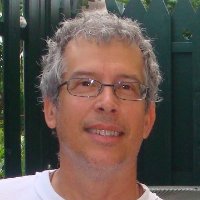
University of Puerto Rico
My background is in plant ecophysiology and has worked in that field with crops, savanna grasses, and rainforest trees. In the last ten years, my research work has been in plant community ecology of dry forests and mangrove areas. Currently, I am interested in the field of ecoinformatics, using as main theme the invasive potential of exotic species, linking information from distribution and climate/landscape variability, with physiological traits. Above all, my main duty is to teach ecology-related courses using a quantitative approach; besides teaching ecology-related courses, the major component of my academic work is mentoring undergraduate students. I am especially interested in helping students to develop critical thinking and quantitative analysis skills that are required and/or valuable across different disciplines within Biology programs.
Module: Global Temperature Change in the 21st Century
http://ecoed.esa.org/index.php?P=FullRecord&ID=355
https://qubeshub.org/collections/post/1478
Augustana College
Kevin is a professor of biology and chair of the natural sciences division at Augustana College in Rock Island, Illinois. In addition to his administrative duties, Kevin teaches undergraduate courses in ecology, evolution, and aquatic biology.
Module 1: Performing a population viability analysis from data students collect on a local plant
http://ecoed.esa.org/index.php?P=FullRecord&ID=541
https://qubeshub.org/collections/post/1493
Module 2: Demography from physical cemeteries, “virtual cemeteries,” and census data
http://ecoed.esa.org/index.php?P=FullRecord&ID=451
https://qubeshub.org/collections/post/1472
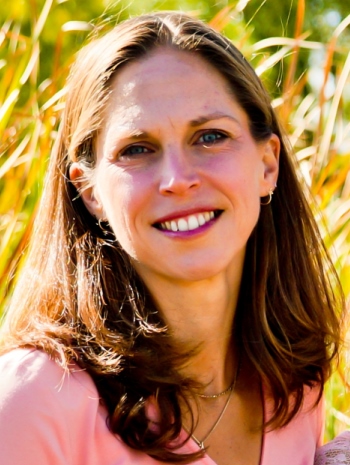 Kristen Genet
Kristen Genet
Anoka-Ramsey Community College
I am an ecologist with interests in community and landscape level phenomena, particularly as they apply to conservation and management of amphibians and reptiles. I obtained my degrees from Michigan State University (M.S., 1999; Ph.D., 2004), and I have been teaching in the Biology Department of Anoka-Ramsey Community College in Coon Rapids, MN (suburb of Minneapolis) since 2003. I teach a wide variety of courses, including courses for non-majors (Unifying Concepts of Biology, Medical Terminology, Environmental Science, Field Biology), and majors (Principles of Biology I and II, General Ecology, Directed Research). In the last few years, we have been working on infusing undergraduate research into the community college setting, and I have been working to build a research program and mentor first and second year undergraduates in projects in the areas of amphibian landscape ecology, aquatic ecology, and turtle population ecology, as well as collaborating with faculty in other disciplines to increase the undergraduate research opportunities throughout our college and programs.
Module 1: Performing a population viability analysis from data students collect on a local plant
http://ecoed.esa.org/index.php?P=FullRecord&ID=541
Module 2: Investigating the footprint of climate change on phenology and ecological interactions in north-central North America
http://ecoed.esa.org/index.php?P=FullRecord&ID=539
https://qubeshub.org/collections/post/1485/comment
David Grisé
Del Mar College
 David J. Grisé, Ph.D., is currently a biology instructor at Del Mar College, a Hispanic-Serving community college in Corpus Christi, TX. Dr. Grisé has been using many of the evidence-based teaching techniques outlined in the original 2011 “Vision & Change” report, such as active learning, for almost 20 years in small (≤ 30 students) to very large (≥ 250) classrooms. He has held faculty positions at institutions ranging from community colleges to doctoral-granting universities even before earning a Ph.D. in Botany at The University of Georgia. An awarding-winning instructor, Dr. Grisé has presented posters and workshops on his methods and students successes at the Ecological Society of America’s Annual Meeting for almost 10 years and has been the mentor for a SEEDS chapter. He is most interested in using evidence-based learning to encourage and prepare a diverse STEM workforce and, in service of this mission, has most recently taken on the challenge of teaching dual credit biology courses for local high school students.
David J. Grisé, Ph.D., is currently a biology instructor at Del Mar College, a Hispanic-Serving community college in Corpus Christi, TX. Dr. Grisé has been using many of the evidence-based teaching techniques outlined in the original 2011 “Vision & Change” report, such as active learning, for almost 20 years in small (≤ 30 students) to very large (≥ 250) classrooms. He has held faculty positions at institutions ranging from community colleges to doctoral-granting universities even before earning a Ph.D. in Botany at The University of Georgia. An awarding-winning instructor, Dr. Grisé has presented posters and workshops on his methods and students successes at the Ecological Society of America’s Annual Meeting for almost 10 years and has been the mentor for a SEEDS chapter. He is most interested in using evidence-based learning to encourage and prepare a diverse STEM workforce and, in service of this mission, has most recently taken on the challenge of teaching dual credit biology courses for local high school students.
Module 1: Investigating the footprint of climate change on phenology and ecological interactions in north-central North America
http://ecoed.esa.org/index.php?P=FullRecord&ID=539
https://qubeshub.org/collections/post/1488
Module 2: Changes in Lake Ice: Ecosystem Response to Global Change
http://ecoed.esa.org/index.php?P=FullRecord&ID=120
https://qubeshub.org/collections/post/1474
Catherine Hulshof De La Pena
Universidad de Puerto Rico Mayaguez
I am a tropical ecologist. I study plants, insects, and their interactions across multiple spatio-temporal scales. In particular, I use tropical dry forests as a model system to understand how organisms respond to climate and climatic variability. Over short time scales, our lab studies physiological responses such as changes in insect body size and coloration patterns in response to environmental heterogeneity. Over evolutionary time scales, we study the role of climatic variability on insect specialization.
Module: Demography from physical cemeteries, “virtual cemeteries,” and census data
http://ecoed.esa.org/index.php?P=FullRecord&ID=451
https://qubeshub.org/collections/post/1472
 Carrie Kissman
Carrie Kissman
St. Norbert College
As an instructor and mentor, I aim to foster critical thinking, curiosity, and the excitement of learning and experiencing biology and ecology in the classroom, lab, and field. In the classroom, I use discussion of ecological and global concerns to help students make direct connections between human activities, biodiversity, and environmental change. As part of the lab experience, I engage students in field research to solidify the concepts we learn in the classroom, excite them about the environment, and help them reconnect with nature. Together, the classroom and lab experiences demonstrate the constantly evolving nature of science and provide opportunities for students to collect and analyze ecological data. I teach field and research-based courses in Ecology (BIOL 228) and Limnology (BIOL 338), and introductory level General Biology II (BIOL 121) and Biodiversity (BIOL 180). Central themes in my courses include understanding the complex interactions that take place in biological communities, developing an enhanced appreciation for the diversity of life on Earth, and the effect of humans on biological diversity and the environment.
Module 1: Exploring the population dynamics of wintering bald eagles through long-term data
http://ecoed.esa.org/index.php?P=FullRecord&ID=320
https://qubeshub.org/collections/post/1492
Module 2: Investigating the footprint of climate change on phenology and ecological interactions in north-central North America
http://ecoed.esa.org/index.php?P=FullRecord&ID=539
https://qubeshub.org/collections/post/1491/comment
Gaston College
Although I am originally from Arizona, I have spent much of my adult life bouncing across the US (Utah, Alabama, North Carolina) preparing for, and eventually landing my dream job as a college instructor. Now I get to pass on a little bit of my knowledge to the next group of students and hopefully have some fun along the way. I am your typical science geek–I like data and squeezing critters as much as the next guy (or gal), but you’ll never get me to admit to anything else! When I am not science-geeking out, I like to enjoy some time at home with my wife and three young kids, or nurture my unhealthy relationship with college football (Roll Tide!)
Module: Investigating the footprint of climate change on phenology and ecological interactions in north-central North America
http://ecoed.esa.org/index.php?P=FullRecord&ID=539
https://qubeshub.org/collections/post/1504
Bethune-Cookman University
Dr. Brandon L. Noel is an Assistant Professor of Integrated Environmental Science at Bethune-Cookman University’s Department of Integrated Environmental Science. His previous efforts have been focused on population dynamics and habitat use and requirements of vertebrates occupying land and water interface ecosystems in the coastal environment for the past 15 years. Dr. Noel earned a B.S. in Marine Biology from the University of West Florida in 2000. Prior to pursuing an M.S. in Biology from Georgia Southern University (GSU), he studied sea turtles, marine mammals, sharks and various fish species throughout the Gulf and Pacific Coast and Alaska working with multiple industries. While completing his M.S. in Biology, he worked as a naturalist on a barrier island of Georgia studying the winter ecology of Piping Plovers (Charadrius melodus) and conducted shorebird, Bald Eagle (Haliaeetus leucocephalus), sea turtle nest and wading bird surveys for 3 years. In 2006, he attended Arkansas State University (ASU) to pursue a Ph.D. in Environmental Science studying the breeding ecology of the Pileated Woodpecker (Dryocopus pileatus) by capturing, tagging, and radio-marking adults, and deploying video cameras at nests. He has worked on projects funded by U.S. Fish and Wildlife Service, National Parks Service, United States Geological Survey, National Marine Fisheries Service, and collaborated with multiple state wildlife agencies (Arkansas Game and Fish Commission, Georgia Department of Natural Resources, Florida Fish and Wildlife Conservation Commission, Florida Department of Environmental Protection), non-profit organizations (Arkansas Nature Conservancy, Georgia Ornithological Society, Arkansas Audubon Society, Environmental Resources Network of Georgia, Bobolink Foundation, Florida Audubon), and private landowners. Lastly, he has led field research teams, served on graduate committees, advised graduate students, and oversaw undergraduate research projects. While his research experiences have been broad, his common goal has been to develop long-term management strategies that conserve target species and communities. He designs his field studies carefully in an effort to incorporate the latest statistical tools to analyze data and draw strong conclusions derived from his research.
Module: Global Temperature Change in the 21st Century
http://ecoed.esa.org/index.php?P=FullRecord&ID=355
https://qubeshub.org/collections/post/1460
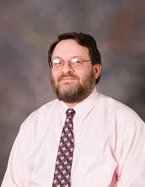 Douglas Norton
Douglas Norton
Villanova University
I am an Associate Professor and Chair in the Department of Mathematics and Statistics at Villanova University. I incorporate the Biological Sciences in my graduate courses in Dynamical Systems and Mathematical Modeling, and I have been involved in some math-bio-computing crossover programs in the past (NSF, HHMI). Our department has joined with the Biology Department and the program in Cognitive and Behavioral Neurosciences to redesign the quantitative offerings for our students in various Life Sciences majors. We are replacing a two-semester sequence on Life Sciences Calculus with three new courses: one semester of Biocalculus, one semester of Biostatistics, and a new course called Modeling for the Life Sciences. I am teaching the first edition of this new course beginning in January 2016. The course is meant to be a survey from the mathematical (discrete, continuous, statistical) perspective as well as on the biological side. I look forward to receiving lots of helpful advice from my Life Sciences colleagues through this program!
Module: Demography from physical cemeteries, “virtual cemeteries,” and census data
http://ecoed.esa.org/index.php?P=FullRecord&ID=451
https://qubeshub.org/collections/post/1473
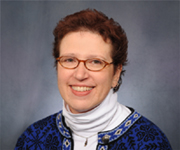 Deborah Overath
Deborah Overath
Del Mar College
Deborah Overath, Ph.D., is currently Project Director for REVISION: Revising Science Education with Vision, an NSF ATE funded project at Del Mar College, a Hispanic-Serving community college in Corpus Christi, TX. The 2008 SACNAS Distinguished Undergraduate Mentor Awardee, Dr. Overath has held faculty positions at both 2-year colleges and 4-year universities since earning a Ph.D. in genetics at The University of Georgia. She has recently become involved in the HHMI SEA-PHAGES program, which incorporates authentic research experiences in biology courses. Dr. Overath is interested in implementing course-based undergraduate research and developing critical and quantitative thinking and problem-solving skills, as well as other recommendations of Vision and Change to encourage students, especially those from groups underrepresented in science, to persist in STEM majors and careers.
Module 1: Investigating the footprint of climate change on phenology and ecological interactions in north-central North America
http://ecoed.esa.org/index.php?P=FullRecord&ID=539
https://qubeshub.org/collections/post/1488
Module 2: Global Temperature Change in the 21st Century
http://ecoed.esa.org/index.php?P=FullRecord&ID=355
https://qubeshub.org/collections/post/1489
 Elizabeth Perkin
Elizabeth Perkin
Willamette University
I’m interested in investigating how anthropogenic alterations have changed patterns of biodiversity and ecosystem functioning in streams and riparian zones. My main research focus has been studying how artificial light at night affects stream ecosystems. I am currently a visiting assistant professor at Willamette University in Salem, OR. Prior to joining Willamette, I completed a postdoctoral fellowship with John Richardson at the University of British Columbia. My doctoral work was done with Klement Tockner at Free University Berlin and I did my masters at the University of Washington with Robert Naiman. My undergraduate degree is from Reed College in Portland.
Module 1: Exploring the population dynamics of wintering bald eagles through long-term data
http://ecoed.esa.org/index.php?P=FullRecord&ID=320
https://qubeshub.org/collections/post/1476/
Module 2: Investigating the footprint of climate change on phenology and ecological interactions in north-central North America
https://qubeshub.org/collections/post/1475
https://qubeshub.org/collections/post/1320
U of Texas- Rio Grande Valley
Alex is an assistant professor in the Department of Biology and the School for Earth, Environmental and Marine Sciences at the University of Texas Rio Grande Valley, one of the largest Hispanic Serving Institutions in the country. He teaches undergraduate and graduate classes in ecology and agroecology at UTRGV, and involves his students in research in sustainable agriculture, invasion ecology, and urban ecology. Though the Faculty Mentoring Network (QUBES) and exchange with other ESA Education Scholars, Alex has implemented different techniques students in his classes and labs to better engage his students so that they are both compelled and equipped to address social and environmental issues through the lens of an ecologist.
Module: Demography from physical cemeteries, “virtual cemeteries,” and census data
http://ecoed.esa.org/index.php?P=FullRecord&ID=451
 Emily Rauschert
Emily Rauschert
Cleveland State University
I am a population biologist focusing on plant invasions and effective teaching and mentoring. My research interests include the spread and spatial dynamics of invasive species, which is often driven by human activities. I use a variety of methods in my research, including synthesizing field experiments and mathematical modeling. My teaching interests include building scientific skills in the classroom, especially scientific thinking, communication, and quantitative skills, and working closely with students to develop these skills on applied research questions.
Module 1: Investigating the footprint of climate change on phenology and ecological interactions in north-central North America
http://ecoed.esa.org/index.php?P=FullRecord&ID=539
https://qubeshub.org/collections/post/2257
 Concepcion Rodriguez
Concepcion Rodriguez
University of Puerto Rico Bayamon
I like crabs. I study population and natural history aspects of land crabs. I also like to interact and motivate people in topics related to science and the conservation of natural resources. To accomplish that, I study land crabs with the help of citizens in a citizen science project. I am an associate professor at the University of Puerto Rico Bayamon (UPRB). I have been in URPB for almost 13 years teaching undergraduate courses such as Zoology, Ecology and Undergraduate Research among others. However, I always look for time to conduct research related to land crabs. I am the co-mentor of LIFE (Leading Initiatives for the Future Ecologist). LIFE has been part of the SEEDS program for 10 years.
Module: Drivers of Avian Local Species Richness: Continental-Scale Gradients, Regional LAndscape, or Local Land Cover?
http://ecoed.esa.org/index.php?P=FullRecord&ID=465
https://qubeshub.org/collections/post/1479/comment
UVA-Wise
I am an entomologist and Assistant Professor of Biology in the Department of Natural Sciences at the University of Virginia’s College at Wise. My most recent endeavors include a Fellowship at the Smithsonian Institution, undergraduate research in insect diversity with first-generation undergraduate students, and developing biodiversity curriculum for K-12 educators.
Module 1: Exploring the population dynamics of wintering bald eagles through long-term data
http://ecoed.esa.org/index.php?P=FullRecord&ID=320
https://qubeshub.org/collections/post/1465
https://qubeshub.org/collections/post/1464
Module 2: Investigating the footprint of climate change on phenology and ecological interactions in north-central North America
http://ecoed.esa.org/index.php?P=FullRecord&ID=539
https://qubeshub.org/collections/post/1466
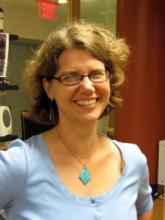 Patricia Saunders
Patricia Saunders
Ashland University
I am an associate professor in the biology department at Ashland University, a primarily undergraduate institution in north-central Ohio. I have served as director of AU’s Environmental Science Program since 2010. My general area of expertise is aquatic ecology, and I teach courses in biology, ecology, and environmental science. My research program focuses on the ways that ecosystem differences affect the ecology and food-web interactions of invertebrates, especially zooplankton. Research methods and interests are often integrated with the training and education of students via readings, datasets, and class field projects. I have also directed many students doing independent research projects related to the ecology of a local lake or ponds at the Black Fork Wetlands Preserve. I received my Ph.D. in ecology from the University of Georgia, M.A. in ecology and evolutionary biology from Indiana University, and B.A. in biology from Oberlin College.
Module: Investigating the footprint of climate change on phenology and ecological interactions in north-central North America
http://ecoed.esa.org/index.php?P=FullRecord&ID=539
https://qubeshub.org/collections/post/1490
Roanoke College
Meg Steinweg, a microbial ecologist, joined the biology faculty as an assistant professor at Roanoke College, VA in Fall 2015 following two years of teaching at the University of Wisconsin-Baraboo/Sauk County. Prior to that, she completed a post-doctoral appointment at Oak Ridge National Laboratory, TN. Meg received her bachelors’ degree from Appalachian State University in Biology, and her MS and Ph.D. in ecology from Colorado State University. Her teaching interests are focused on microbiology, ecology, nutrient transformations, introductory biology, and getting students actively involved in the scientific process. Meg’s research interests are focused on soil microbial responses to environmental disturbance, with a focus on drought.
Module 1: Investigating the footprint of climate change on phenology and ecological interactions in north-central North America
http://ecoed.esa.org/index.php?P=FullRecord&ID=539
https://qubeshub.org/collections/post/1462/
Module 2: Global Temperature Change in the 21st Century
http://ecoed.esa.org/index.php?P=FullRecord&ID=355
https://qubeshub.org/collections/post/1463/
City College of San Francisco
I am a broadly trained biologist interested in the consequences and maintenance of biodiversity. I received my Ph.D. in Ecology from U.C. Davis and Masters degrees in Botany from Oregon State University and Marine Sciences from U.C. Santa Cruz. I completed a research fellowship at U.C. Berkeley before coming to CCSF in 2005. I enjoy sharing my enthusiasm for the natural world with students, both in the classroom and the field.
Module: Investigating the footprint of climate change on phenology and ecological interactions in north-central North America
http://ecoed.esa.org/index.php?P=FullRecord&ID=539
https://qubeshub.org/collections/post/1468
 Dustin Wilgers
Dustin Wilgers
McPherson College
From the beginnings of my academic career, I have always enjoyed ecological research. I received my B.S. in Biology at Southwestern College where I did my honors project on zebra mussel colonization potentials in different Kansas lakes. My M.S. at Kansas State University focused fire disturbance ecology of amphibians and reptiles in the tallgrass prairie. I then switched to my current passion behavioral ecology for my Ph.D. at the University of Nebraska-Lincoln, where I studied complex signal function in wolf spiders. As a professor at a small private liberal arts college, McPherson College, I continue to be active in research and look to incorporate my students into my research and to engage them in scientific research in all possible ways. I look forward to engaging students with real scientific data in the classroom, which will enhance their analytical and critical thinking skills. My ultimate goal is to include basic data analysis in not only my upper-level science classes but my general education classes as well.
https://qubeshub.org/members/2954/collections
 James Vance
James Vance
The University of Virginia’s College at Wise
I am an Associate Professor of Mathematics and Wildlife Resources at The University of Virginia’s College at Wise (UVAWise) in Wise, VA. I received a Masters in Mathematics, a Masters in Natural Resources, and a Ph.D. in Mathematics from Virginia Tech. I have taught for the last 14 years including math, statistics, and wildlife courses at Liberty University, King University, and UVAWise. My research interests include mathematical modeling, wildlife ecology, and wildlife management.
Module 1: Exploring the population dynamics of wintering bald eagles through long-term data
http://ecoed.esa.org/index.php?P=FullRecord&ID=320
https://qubeshub.org/collections/post/1454/
Module 2: Investigating the footprint of climate change on phenology and ecological interactions in north-central North America
http://ecoed.esa.org/index.php?P=FullRecord&ID=539
https://qubeshub.org/collections/post/1453/

